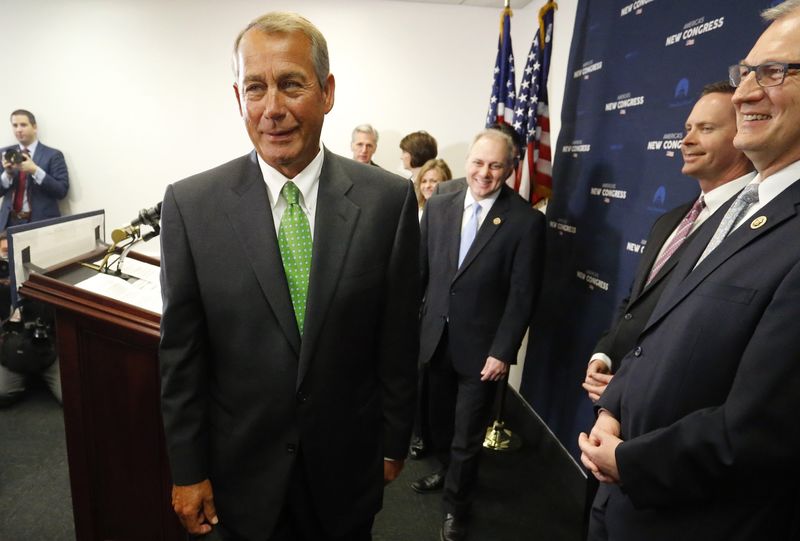Investing.com’s stocks of the week
WASHINGTON (Reuters) - House of Representatives Speaker John Boehner said on Thursday he doubted there were enough votes in the new Republican-majority Congress to raise gasoline taxes.
"I've never voted to raise the gas tax," the Ohio Republican told reporters.
Boehner said that when the Democrats controlled Congress, they could not find the votes to raise the gas tax, adding that "it's doubtful the votes are here to raise the gas tax again" in the Republican-majority Congress that took office this week.
As U.S. gasoline prices have been falling, some U.S. lawmakers see a golden opportunity to bump up taxes at the pump to help pay for the repair of crumbling roads and bridges.
In the Senate, Republican Jim Inhofe, the new chairman of the Senate Environment Committee, said on Wednesday a gasoline tax, or "user fee" as he prefers to call it, was one of the measures "on the table" as his panel works on a transportation bill this year but he stopped short of supporting such a fee.
Dick Durbin, the No. 2 Democrat in the Senate, said Wednesday he favored increasing the gas tax but that it should be coupled with relief for low- and middle-income consumers through tax credits or other means.
Boehner did not totally rule out a tax increase and acknowledged that more funding was needed for U.S. infrastructure. He said funding U.S. highways this year was "critically important" and there were numerous ideas for how to do this, adding that lawmakers will have to "work our way through" the problem.
"We've got to find a way to deal with America's crumbling infrastructure and we need to do it in a long-term program that is in fact funded," Boehner said.
Fuel taxes have been flat for more than 20 years, starving the Highway Trust Fund of revenue used for rising infrastructure repair costs. Lawmakers have fueled the fund with last-minute short-term injections of cash but want to find a more permanent fix.
Last July Republican Senator Bob Corker of Tennessee and Democrat Chris Murphy of Connecticut proposed raising federal gasoline and diesel taxes by 12 cents a gallon over two years from the current 18.4 cents.
The idea failed to take hold for the same reason similar proposals failed in the past: the idea of raising taxes on consumers has been anathema to lawmakers of both parties, particularly for conservatives who have signed pledges not to increase taxes.
